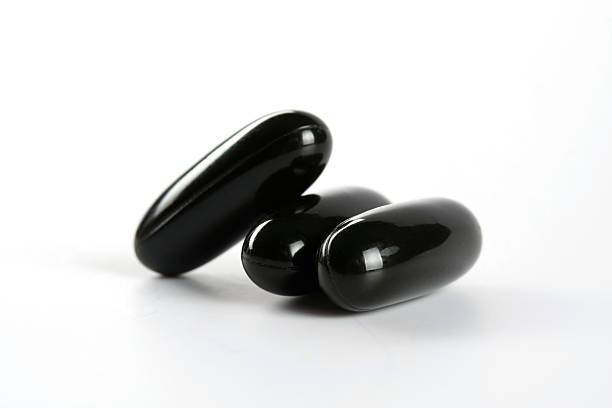Most diets don’t work. Or, they do work, for a period of time, but they’re not sustainable. Diets restrict certain foods, have you count and cut calories, or even worse, give you high hopes, with unrealistic expectations. Intermittent fasting is not a diet. Intermittent fasting is a pattern of eating. It’s not about what you eat; it’s about when you eat. If you've been thinking about using intermittent fasting, this quick guide will help get you started the right way.
How Does Intermittent Fasting Work?
Intermittent fasting rewires your body to use food more efficiently. When you’re in a fed-state your body uses stored glycogen for energy. When you’re in a fasted-state your body uses stored body fat for fuel.
Intermittent Fasting helps optimize two key hormones, insulin and cortisol. When you eat your body turns carbohydrates into glucose and the glucose goes into your blood, which then raises your blood sugar or glucose levels. When your glucose rises, your pancreas springs for action and tries to extinguish the situation by secreting insulin. The insulin expels the glucose out of your blood so it can then be used as fuel for energy. The problem is that the insulin spike from the carbohydrates you ate, directs glucose to store or create body fat, as opposed to utilizing it as fuel. Therefore, by keeping your insulin levels low, through intermittent fasting, your blood glucose levels will also be low, directing your body to use stored body fat for fuel, as opposed to glucose.
Cortisol is our bodies stress hormone and regulates a wide range of biological processes including metabolic and immune responses. Cortisol is an important indicator and determinant in the metabolic response to stress, specifically the 'fight or flight response’, which influences weight gain and obesity. Cortisol also controls the body’s blood sugar levels, thus regulating metabolism. Intermittent fasting has a direct effect on suppressing cortisol levels, through the release of human growth hormone.
RELATED ARTICLE The Effects Of Cortisol On Stress & Weight Gain
Human Growth Hormone (HGH) increases when you fast. HGH promotes the synthesis of lean muscle mass, and when you fast, can stimulate the breakdown of body fat through a process called lipolysis, which releases free fatty acids and glycerol, which are then metabolized to produce energy. Intermittent fasting can help optimize your body composition through this process, specifically increasing HGH and controlling cortisol and insulin levels.
Now that you know how intermittent fasting works and its effect on your body, how exactly do you do it?
How To Intermittent Fast
Eat For 8, Fast For 16
It’s simple. Pick any 8-hour window of the day, whether it’s 10 AM - 6 PM, or 12 PM – 8 PM, and you’re free to eat. Now, just because it’s about when you eat, and not necessarily about what you eat, does not mean, you’re going to get lean and lose body fat, by overloading on pizza and doughnuts. This isn’t IIFYM or Flexible Dieting. The way you’ll see the best results, is through a healthy and nutritious diet, full of lean organic proteins, functional carbohydrates, and quality healthy fats.
RELATED ARTICLE How To Create A Healthy Nutrition Plan In 5 Easy Steps
Do you need to skip breakfast during your fast? Not necessarily. If you have to eat breakfast, then you can eat in the morning when you wake up, and quit eating in the afternoon. It’s honestly a matter of preference. Do you want to eat breakfast, or do you want to eat dinner? I choose breakfast for lunch, and dinner for dinner.
What Is The Best Time To Intermittent Fast?
Below you'll find specific fasting and feeding windows. All you need to do is pick which will work best for you and your schedule.
Morning Workout 16/8 Plan
If you work the conventional 8 or 9-5pm, the 16/8 morning schedule works well, as you can work out in the morning during your fasted period before work and start your feeding window in the afternoon around lunch-time.
- Fasting Window: 4,5,6pm - 8,9,10am
- Feeding Window: 8,9,10am - 4,5,6pm
Mid-Morning Workout 16/8 plan
If you find that working out mid-morning works best for you, then choosing from one of the times below can provide an optimal time for your fasted workout.
- Fasting Window: 8,9,10 pm - 12,1,2 pm
- Feeding Window: 12,1,2 pm - 8,9,10 pm
What If You Workout In The Evening?
I'll be honest, if you typically hit the box in the evening or after work around 5-7pm your fasted and fed windows are going to be much different and more challenging. Realistically the most optimal time to complete a fasted workout is in the morning. However, if you're a night-owl and typically stay up later, then this specific eating pattern could work for you. It's definitely possible.
Afternoon 17/7 and 18/6 plan
17/7 Plan
- Fasting Window: 12 am - 5 pm
- Feeding Window: 5 pm - 12 am
18/6 Plan
- Fasting Window: 12am - 6pm
- Feeding Window: 6pm - 12am
What To Drink During Intermittent Fasting
When you’re in a fasted state, and in order for intermittent fasting to work, its crucial that whatever you drink during your fast has a very low caloric value. I generally recommend coffee or tea in the morning. Coffee will actually help with satiation, and keep you sane. If you have a hard time drinking your coffee black, then add 1-2tbsp of grass-fed butter, MCT, or Coconut Oil. Adding healthy fats will help with satiation, and control cholesterol levels.
RELATED ARTICLE What Can You Drink During Your Fast
What Should You Eat During Intermittent Fasting?
Intermittent fasting isn’t necessarily about what you eat, it’s about when you eat it. However, if you want superior results, then incorporating wholesome foods, with a well-rounded diet, will help you get there faster. I recommend a Ketogenic approach or a diet that consists of higher fats and proteins while limiting your number of carbs so that you keep your insulin levels low. Do you have to that, absolutely not. It's all a matter of preference and choosing what's right for you.
RELATED ARTICLE The Keto Diet: Is The Keto Diet Right For You?
Does Intermittent Fasting Work?
Yes. Intermittent fasting absolutely works to improve total body composition. Through the control and regulation of insulin and cortisol, and the increased release of HGH, intermittent fasting stimulates the key and essential functions to reduce body fat while maintaining lean muscle mass.
The Takeaway
If you're looking to optimize your body composition, then intermittent fasting is definitely one way to do it. Plain and simple, it works. The best part about it is that it's easy. It takes the guesswork out of dieting because it's not a diet. Instead of restricting foods, or cutting calories, you focus on eating healthy only a couple of times a day and creating a healthy lifestyle that's sustainable and that doesn't set you up for failure. If you're really looking to optimize your performance, then I highly recommend reading the related article below.
RELATED ARTICLE Fasted CrossFit: The Turn-Key Revolution To Total Body Optimization
Need Help With Optimizing Your Diet And Nutrition Plan To Finally Get The Results You've Been Waiting For?
SWOLVERINE IS AN ENDURANCE ATHLETE AND ACTIVE LIFESTYLE BRAND. MADE FOR THE ELITE ATHLETE, AND THE STRONG-WILLED OUR PRODUCTS WERE DESIGNED TO FUEL YOUR ATHLETIC PERFORMANCE. WE PERFORM WHEN YOU PERFORM.
We believe that everyone can optimize not only their athletic performance but their human potential. The way we believe we can optimize performance is through transparency, clinically effective doses, and clinically proven ingredients with evidence-based outcomes. We provide the nutrients you need to power your active lifestyle.














